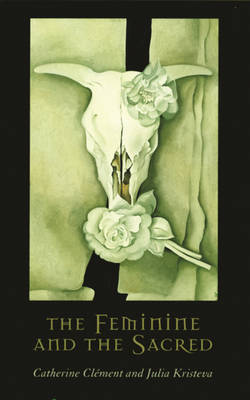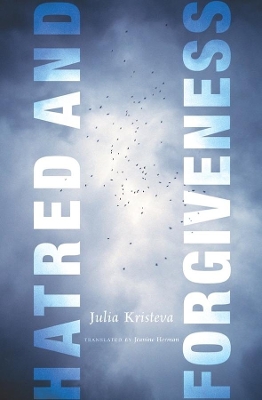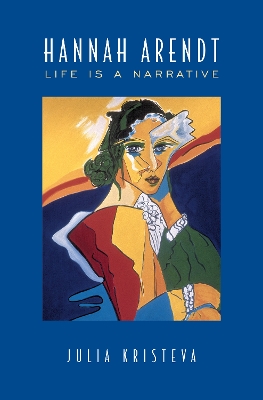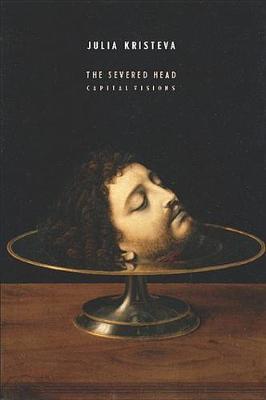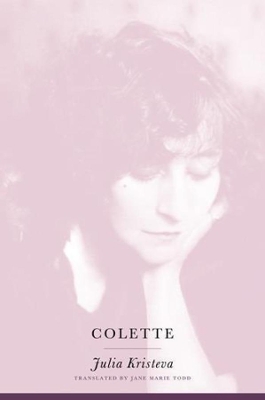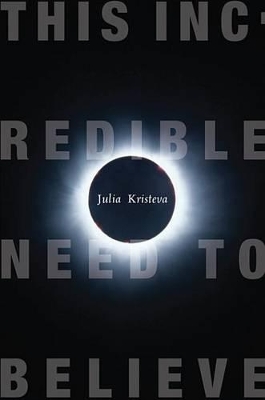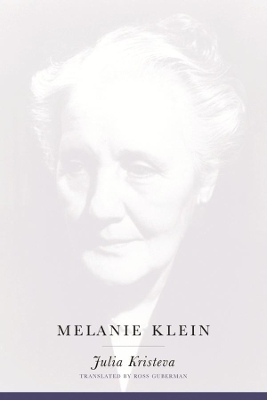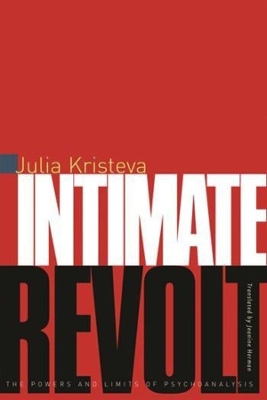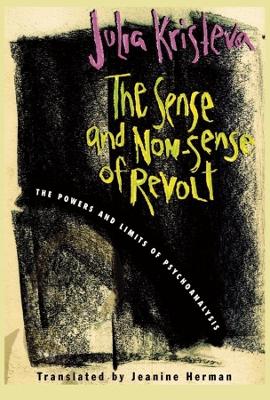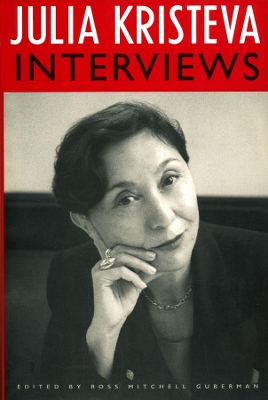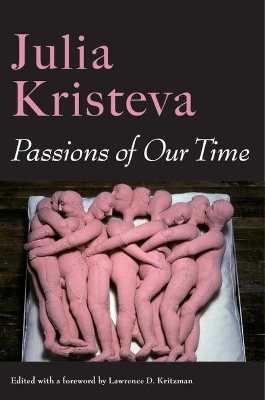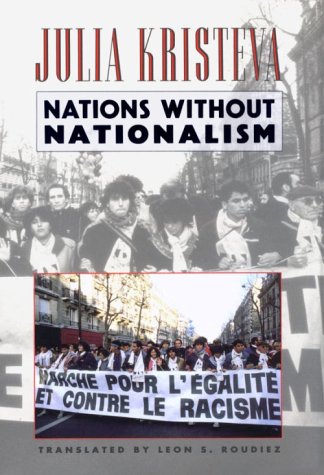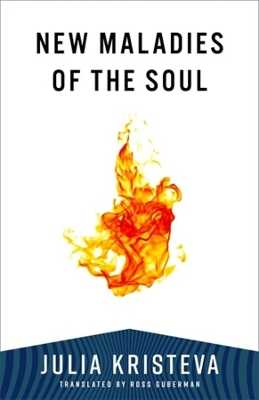European Perspectives: A Series in Social Thought and Cultural Criticism
14 total works
Nevertheless, their wide-ranging and exhilarating dialogue succeeds in raising questions that are perhaps more important to ask than to answer.
Throughout Kristeva develops the notion that psychoanalysis is the key to serenity, with its processes of turning back, looking back, investigating the self, and refashioning psychical damage into something useful and beautiful. Constant questioning, Kristeva contends, is essential to achieving the coming to terms we all seek at the core of forgiveness.
In the last two chapters, on the body and the Kantian concept of judgment, Kristeva offers a subtle critical exploration of Arendt's ignoring of the world of the unconscious opened up by psychoanalysis, an exploration that, paradoxically, reveals the political force of Arendt's acceptance of herself as woman and Jew. Kristeva's account of Arendt's 'philosophy of narrative' is clear, coherent, forceful, and often impassioned. Much has been written in North America about Arendt's political work, but little about her more philosophical endeavours. Hannah Arendt: Life Is a Narrative makes a compelling case that Arendt may be the twentieth century's only true political philosopher.
Kristeva considers the head as icon, artifact, and locus of thought, seeking a keener understanding of the violence and desire that drives us to sever, and in some cases keep, such a potent object. Her study stretches all the way back to 6,000 B.C.E., with humans' early decoration and worship of skulls, and follows with the Medusa myth; the mandylion of Laon (a holy relic in which the face of a saint appears on a piece of cloth); the biblical story of John the Baptist and his counterpart, Salome; tales of the guillotine; modern murder mysteries; and even the rhetoric surrounding the fight for and against capital punishment. Kristeva interprets these "capital visions" through the lens of psychoanalysis, drawing infinite connections between their manifestation and sacred experience and very much affirming the possibility of the sacred, even in an era of "faceless" interaction.
She admired those who lived on the sexual edge and was accused of moral corruption in intellectual matters-she published in pro-Vichy, anti-Semitic journals during the Occupation, even as she fought to keep her Jewish third husband from deportation. Kristeva deftly examines Colette's controversial life and work and considers two of her most important influences, Honore de Balzac and Marcel Proust. In a multifaceted approach, Kristeva considers Colette's use of metaphor, the characters in her novels, and the development of her writing within the context of her life. Paying particular attention to the language the French writer used to "say the unsayable and name the unnameable," Kristeva offers an elegant and sophisticated critique of Colette's psychological conflicts, particularly her sexual relationships and how these conflicts are both recorded in and resolved through the act of writing. Appealing to Freudian and Lacanian concepts such as the Oedipus complex, perversion, the symbolic, and melancholy, Kristeva opens Colette's oeuvre to psychoanalytic interpretation.
The impression that remains is of a woman intent on experiencing the world's pleasures-its jouissance-in a melding with the world's flesh.
So writes Julia Kristeva in this provocative work, which skillfully upends our entrenched ideas about religion, belief, and the thought and work of a renowned psychoanalyst and critic. With dialogue and essay, Kristeva analyzes our "incredible need to believe"& mdash;the inexorable push toward faith that, for Kristeva, lies at the heart of the psyche and the history of society. Examining the lives, theories, and convictions of Saint Teresa of Avila, Sigmund Freud, Donald Winnicott, Hannah Arendt, and other individuals, she investigates the intersection between the desire for God and the shadowy zone in which belief resides.
Kristeva suggests that human beings are formed by their need to believe, beginning with our first attempts at speech and following through to our adolescent search for identity and meaning. Kristeva then applies her insight to contemporary religious clashes and the plight of immigrant populations, especially those of Islamic origin. Even if we no longer have faith in God, Kristeva argues, we must believe in human destiny and creative possibility. Reclaiming Christianity's openness to self-questioning and the search for knowledge, Kristeva urges a "new kind of politics," one that restores the integrity of the human community.
Klein is celebrated here as the first person to see the mother as the source of not only creativity, but of thought itself, and the first to consider the place of matricide in psychic development. As such, Klein is a seminal figure in the evolution of the provocative ideas about motherhood and the psyche for which Kristeva is most famous. Klein is thus, in a sense, a mother to Kristeva, making this book an account of the development of Kristeva's own thought as well as Klein's.
For Kristeva the rebellions championed by these figures-especially the political and seemingly dogmatic political commitments of Aragon and Sartre-strike the post-Cold War reader with a mixture of fascination and rejection. These theorists, according to Kristeva, are involved in a revolution against accepted notions of identity-of one's relation to others. Kristeva places their accomplishments in the context of other revolutionary movements in art, literature, and politics. The book also offers an illuminating discussion of Freud's groundbreaking work on rebellion, focusing on the symbolic function of patricide in his Totem and Taboo and discussing his often neglected vision of language, and underscoring its complex connection to the revolutionary drive.
The collection begins with vivid recollection of celebrating, as a child in Bulgaria, Alphabet Day, the holiday honoring the Cyrillic letters, which proceeds outward into a contemplation of the writer as translator. Kristeva considers literature with Barthes, freedom through Rousseau, Teresa of Avila and mystical experience, Simone de Beauvoir's dream life, and Antigone and the psychic life of women. A group of essays drawing on her psychoanalytic work delve into Freud, Lacan, maternal eroticism, and the continued importance of psychoanalysis today. In a series of striking investigations, she thinks through disability and normativity, monotheism and secularization, the need to believe and the desire to know. Calling for the courage to renew and reinvent humanism, she outlines the principles of a stance founded on the importance of respecting human life. Finally, Kristeva discusses French culture and diversity, rethinking universalism and interrogating the potential for Islam and psychoanalysis to meet, and pays homage to Beauvoir by rephrasing her dictum into the provocative "One is born woman, but I become one."
Kristeva finds that the psychoanalytic models of Freud and Lacan need to be reread in light of this new patient, a product of the contemporary moral crisis of values resulting from a loss of ideology and a deterioration of belief. By revisiting Freud and Lacan, Kristeva offers the hope of a new psychoanalysis. Each patient, she contends, suffers from a unique malady which must be targeted. In the first half of the book, Kristeva offers a series of detailed case studies that reinforce her provocative theoretical notions. These case studies illustrate today's "new maladies"—common psychiatric disturbances as they are manifested in today's patient. Drawing on the work of the psychologist Helene Deutsch and the writer Germaine de Stael. Kristeva turns her attention to women's experiences and contributions. Delving into art, literature, autobiography, and theories of language, she continues with an exploration of cultural products ranging from the Bible to the work of Leonardo da Vinci. Kristeva offers the hope that these maladies harbor new creative potential and new hope for the soul—if we can comprehend their effect on the individual and collective experiences of our time.
